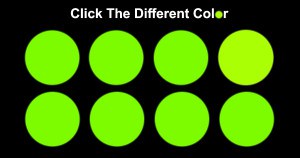
Many people think that vision loss and blindness is a normal part of aging, but it’s important to remember that it’s not. That being said, you may experience normal changes in your vision such as needing more light to see better, distinguishing certain colors, or difficulty focusing on objects close-up. These are considered normal changes in vision as you age but it’s still important to keep up with maintaining your healthy vision. Here are some tips:
1. Get a comprehensive dilated eye exam
Once you reach 50 years old, it’s recommended to get a comprehensive dilated eye exam to see how your vision health is doing – even if you are not experiencing any vision problems. Many eye diseases and conditions do not have symptoms but can be caught early during comprehensive dilated eye exams. Once you get an exam done and are aware of any eye health concerns, your doctor will be able to give you an idea of how often you should be getting eye exams and any preventative measures you should be taking. We also created our own little Color Quiz to help keep you sharp!

2. Know the common age-related eye diseases and conditions:
- Age Related Macular Degeneration (AMD)
- AMD is a disease associated with aging that gradually destroys sharp, central vision. Learn more about AMD.
- Cataract
- A cataract is a clouding of the lens in the eye. Vision with cataract can appear cloudy or blurry, colors may seem faded and you may notice a lot of glare. Learn more about Cataract.
- Diabetic Eye Disease
- Diabetic eye disease is a complication of diabetes and a leading cause of blindness. Learn more about Diabetic Eye Disease.
- Glaucoma
- Glaucoma is a group of diseases that can damage the eye’s optic nerve and result in vision loss and blindness. Learn more about Glaucoma.
- Dry Eye
- Dry eye occurs when the eye does not produce tears properly, or when the tears are not of the correct consistency and evaporate too quickly. Learn more about Dry Eye.
- Low Vision
- Low vision means that even with regular glasses, contact lenses, medicine, or surgery, people find everyday tasks difficult to do. Learn more about Low Vision.
3. Feed your vision, eat healthy for healthy eyes
Many people aren’t aware of the role everyday diet takes in eye health. Many, who are aware, know carrots to be a great source of nutrients for eye health but there are actually many other excellent (and tasty) sources.
4. Wear protective eyewear when necessary
If you have any housework or yard work to do that could potentially injure your eyes, however unlikely, it is a good idea to wear some kind of protective eyewear or goggles. If you are practicing recreational sports as you age (great way to stay active and social!), be sure to protect your eyes during sports as well. Games that deal with small sized balls or objects are particularly dangerous for eyes. Some examples include: badminton, baseball, paintball, and golf.
5. Protect your eyes from harmful UV rays
One of the easiest ways to protect your eye and vision health is to protect your eyes from sun damage and harmful UV rays. Sun damage to your eyes can cause various eye diseases, conditions, and discomforts including Photokeratitis, a corneal sunburn. There are many ways to protect your eyes from harmful UV rays including prescriptions sunglasses, regular fashion sunglasses, clip ons, fitover sunglasses, brimmed hats, umbrellas, and even photochromic lenses. It is recommended to use as much coverage as possible. This means it’s wise to wear a wide brimmed hat when out in the sun in addition to full coverage sunglasses.
6. Don’t smoke
We all know smoking is bad for your lungs and can cause lung cancer, but did you know it’s just as bad for your eyes? Smoking is just as bad for your eyes as it is for the rest of your body and research has shown a link between smoking and many eye diseases and conditions. Smokers have shown to have an increased risk for developing AMD, cataract, and optic nerve damage, all of which can lead to vision loss and blindness.
7. Stay active and maintain a healthy weight
Your body is a system. Keeping your weight, activity level, and body as a whole as healthy as possible will have a positive effect on your vision and eye health. Maintaining a healthy weight is important for overall health but can also have a direct effect on diabetes and therefore risk of diabetic retinopathy, vision loss, and other eye conditions. Keeping your activity level up is of course healthy for your body, but has also been linked to better mental health, reduction in risk of cognitive, weight and eye conditions, and a happier life! Finding a nice daily activity such as tai chi, yoga, jogging or walking this month is a great idea!
Here are just a few resources for finding ways to celebrate and benefit from Healthy Aging Month:

Comments are closed.